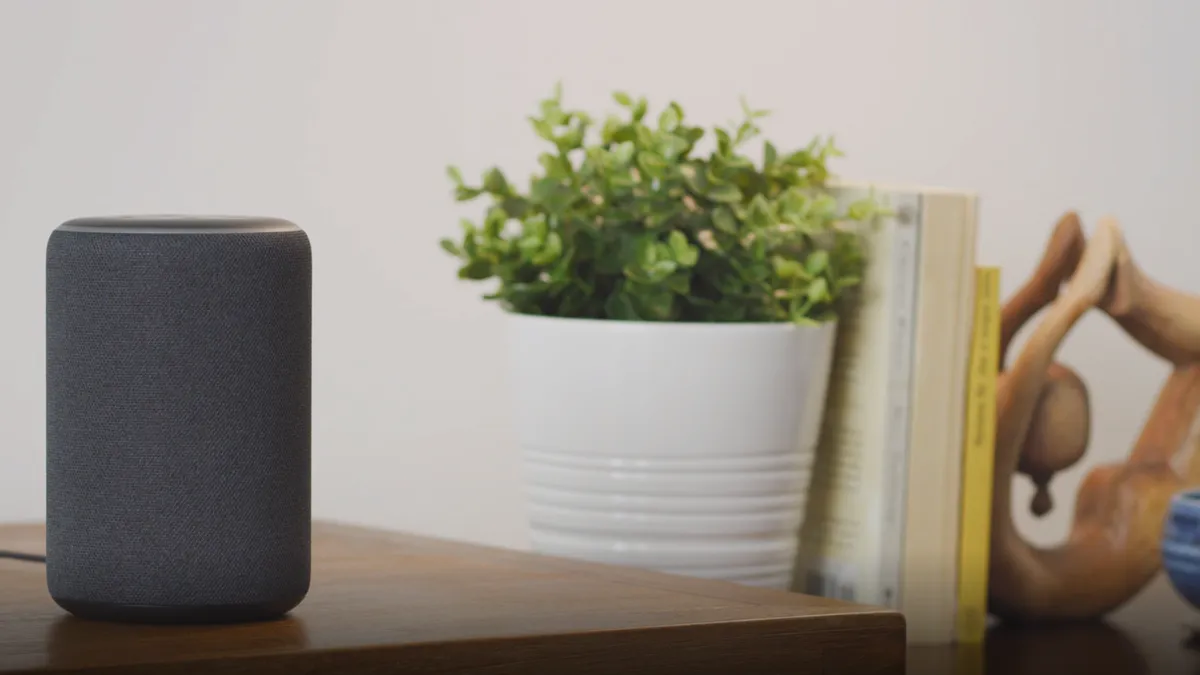Dive Brief:
- A bill moving through the California legislature would bar companies from saving, storing or sharing data collected from smart speakers without written consent. The bill passed the state’s Privacy and Consumer Protection Committee last week as part of a broader data protection package, according to Government Technology.
- The Anti-Eavesdropping Act would impose a fine of up to $2,500 per connected device for companies that violate the data protection rules.
- A recent report in Bloomberg found Amazon has a team of employees who listen to recordings from its Alexa devices, which can sometimes detect private conversations. This bill would curb that practice.
Dive Insight:
Multiple reports have brought attention to the potential recording and data collection from smart speakers, which sit in people’s homes and living rooms. Assemblyman Jordan Cunningham, who introduced the bill, told Government Technology that residents should "have a baseline of privacy [that] peaks when it comes to the home," adding that “privacy is a right in the California penal code."
Industry groups, however, have said the bill is unnecessary, pointing to another piece of legislation in the state that requires internet of things (IoT) devices to have "reasonable" security features.
The bill emphasizes the potential barriers to widespread deployment of sensors and IoT devices in smart cities, which can collect data and monitor people in public. Sidewalk Labs, for example, faced significant public pressure over how it would collect and share data from its smart city test site in Toronto, forcing the company to announce plans for an Independent Civic Data Trust to handle data. Amid the spread of facial recognition and biometric scanning, San Francisco is considering a bill that would bar government use of technology, and a bipartisan U.S. Senate bill would require consumer consent to redistribute or disseminate data collected from the sensors.
Still, much of the data and privacy policy has focused on consumer and home technology, which means cities may have to play catch up when it comes to public installations. Speaking at the Smart Cities Connect conference in Denver last month, Brian Crow, vice president for analytics and software solutions at Sensus, said government should be cautious when it comes to data security. "If our citizens lose trust in us as purveyors of their data, then we'll never be able to take the smart city concept to the place that we want to," Crow said at the time.










